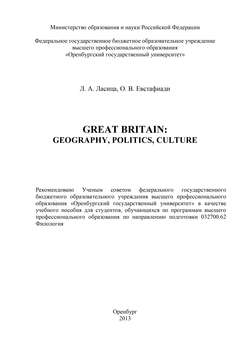Читать книгу Great Britain: geography, politics, culture - Л. А. Ласица - Страница 14
На сайте Литреса книга снята с продажи.
2 History of Britain: from Early Britain to the Middle Ages
2.7 The medieval period (1066 – 1485)
ОглавлениеUnlike the Germanic invasions, the Norman invasion was small-scale. There was no such thing as a Norman village or a Norman area of settlement. Instead, the Norman soldiers became the owners of some patches of land – and of the people living on it. A strict feudal system was imposed. Great nobles, or barons, were responsible directly to the king; lesser lords, each owing a village, were directly responsible to a baron. Under them were the peasants, tied by a strict system of mutual duties and obligations to the local lord, and forbidden to travel without his permission. The peasants were the English-speaking Saxons. The lords and the barons were the French-speaking Normans. This was the beginning of the English class system.
The Normans introduced the strong system of government that’s why the Anglo-Norman kingdom was the most powerful political force in the British Isles. The authority of the English monarch gradually extended to other parts of these islands in the next 210 years. By the end of the thirteenth century, a large part of eastern Ireland was controlled by Anglo-Norman lords in the name of the English king and the whole of Wales was under his direct rule (at which time the custom of naming the monarch’s eldest son the ‘Prince of Wales’ began). Scotland managed to remain politically independent in the medieval period, but was obliged to fight occasional wars to do so.
The cultural story of this period is different. Two hundred and fifty years after the Norman Conquest a Germanic language (Middle English) but not the Norman (French) language became the dominant one in all classes of society in England. Furthermore, the Anglo-Saxon concept of common law, but not Roman law, formed the basis of the legal system.
Despite English rule, northern and central Wales was never settled in great numbers by Saxon or Norman. As a result the (Celtic) Welsh language and culture remained strong. The Anglo-Norman lords of eastern Ireland remained loyal to the English king but, despite laws to the contrary, mostly adopted the Gaelic language and customs.
By the end of this period there was a cultural split in Scotland between the lowlands, where the way of life and language was similar to that in England, and the highlands, where (Celtic) Gaelic culture and language prevailed.
Parliament appeared in this period in England. The word ‘parliament’ comes from the French word parler (to speak), and was first used in England in the thirteenth century to describe an assembly of nobles called together by the king. In 1295, the Model Parliament set the pattern for the future by including elected representatives from urban and rural areas.
